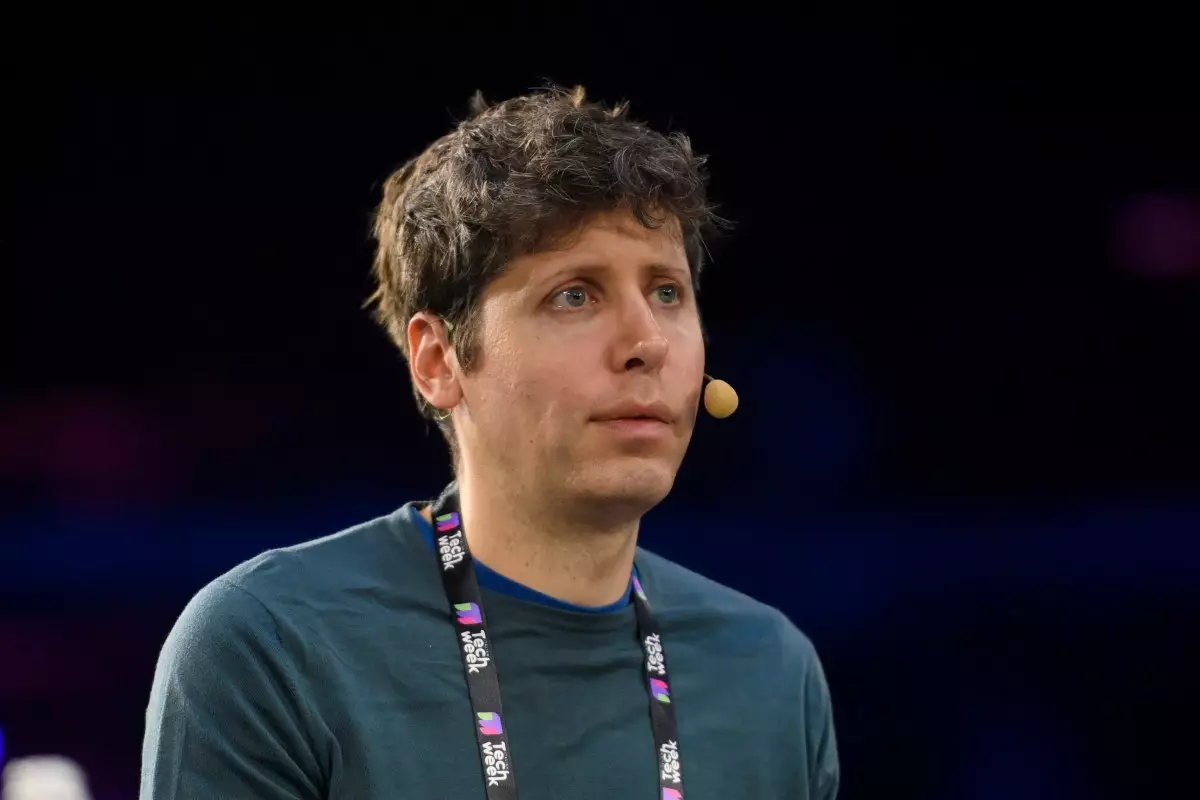In a striking transformation within the rapidly evolving landscape of cryptocurrency and identity verification technology, Worldcoin has officially rebranded itself as “World.” Co-founded by Sam Altman, a figure synonymous with innovation due to his leadership at OpenAI, the startup’s repositioning away from merely being a “coin” signifies a broader vision that extends beyond traditional financial paradigms. Announced during a live event in San Francisco, this change is emblematic of the startup’s intent to navigate the complex waters of identity verification in an increasingly digitized world.
At the heart of World’s mission is a commitment to “proof of personhood,” an initiative aimed at discerning real individuals from digital impersonators in an age where AI blurs the lines between human and machine interactions. Alex Blania, World’s CEO, articulated that the old name didn’t align with the startup’s evolved aspirations, indicating a clear pivot toward establishing itself as a provider of comprehensive identity services. By shedding its cryptocurrency image, World is poised to carve out a distinctive niche in the tech ecosystem, potentially redefining how identity is authenticated on the blockchain.
World proposes an innovative solution to what they see as an impending challenge posed by advanced AI systems. The growth of AI-generated content raises urgent questions about authenticity and trust online; thus, World aims to offer services that authenticate human identity much like traditional banks verify personal identities. Although Altman continues to play an active role in World, Blania asserts that the initiatives of World and OpenAI are distinct from one another, with each pursuing separate yet impactful missions. While AI is advancing rapidly, World aims to create an infrastructure that facilitates the equitable distribution of AI’s benefits through its verification systems.
Despite its ambitious vision, World is not without its share of skepticism and regulatory scrutiny. Several governments, notably in Kenya and parts of Europe, have raised significant concerns around privacy and security, leading to investigations and, in some cases, the halting of Worldcoin operations. As these inquiries continue, they cast a shadow over the startup’s future and its ability to gain public trust. The skepticism around WorldCoin’s original intent—to distribute wealth through crypto—can easily transition into mistrust regarding its new identity verification endeavors.
At the live event, World outlined a four-step plan, with the first two steps already in progress: the creation of the Orb and the establishment of a decentralized ownership framework. The next critical hurdle is scaling operations, which currently services around 7 million verified individuals. To achieve its goal, World is focusing on an aggressive expansion strategy to increase eyeball scans globally, fostering a finalized ecosystem where human verification services can thrive.
The newly unveiled Orb, an advanced iteration of the iris-scanning device, represents a significant technological leap. Designed for mass production, it boasts enhanced efficiency and lower costs, making it accessible for broader deployment in urban settings. Partnerships, such as the one established with Rappi, the largest delivery service in Latin America, underscore the practicality of World’s approach—allowing users to undergo verification conveniently from their homes.
Beyond the Orb, World introduced several additional services, including Deep Face, which aims to tackle the burgeoning issue of online impersonation and deepfake technology. This additional layer of security illustrates World’s commitment to not just identity verification but also to establishing an online environment where authentic interactions are prioritized. Furthermore, the World ID credential aims to bridge the gap between government-issued identification and digital identity verification, suggesting a thoughtful approach to user privacy and data security.
Despite these innovations, World must confront the substantial challenge of convincing users to trust an identity verification system by a cryptocurrency company. The lingering apprehensions regarding digital privacy, especially tempered by concerns surrounding transparency and corporate governance within cryptocurrency enterprises, could hinder widespread acceptance. During the event, it became evident that building trust will be paramount as World moves forward, not only in gaining user buy-in but also in navigating the delicate landscape of global regulations and standards.
As World embarks on this new journey, its success may ultimately depend on their ability to reconcile innovation with public trust, ensuring that their cutting-edge technology aligns seamlessly with the fundamental human need for authenticity and security in both the digital and real worlds.

